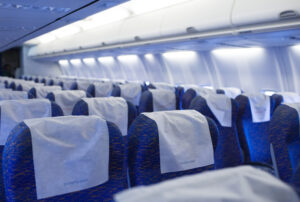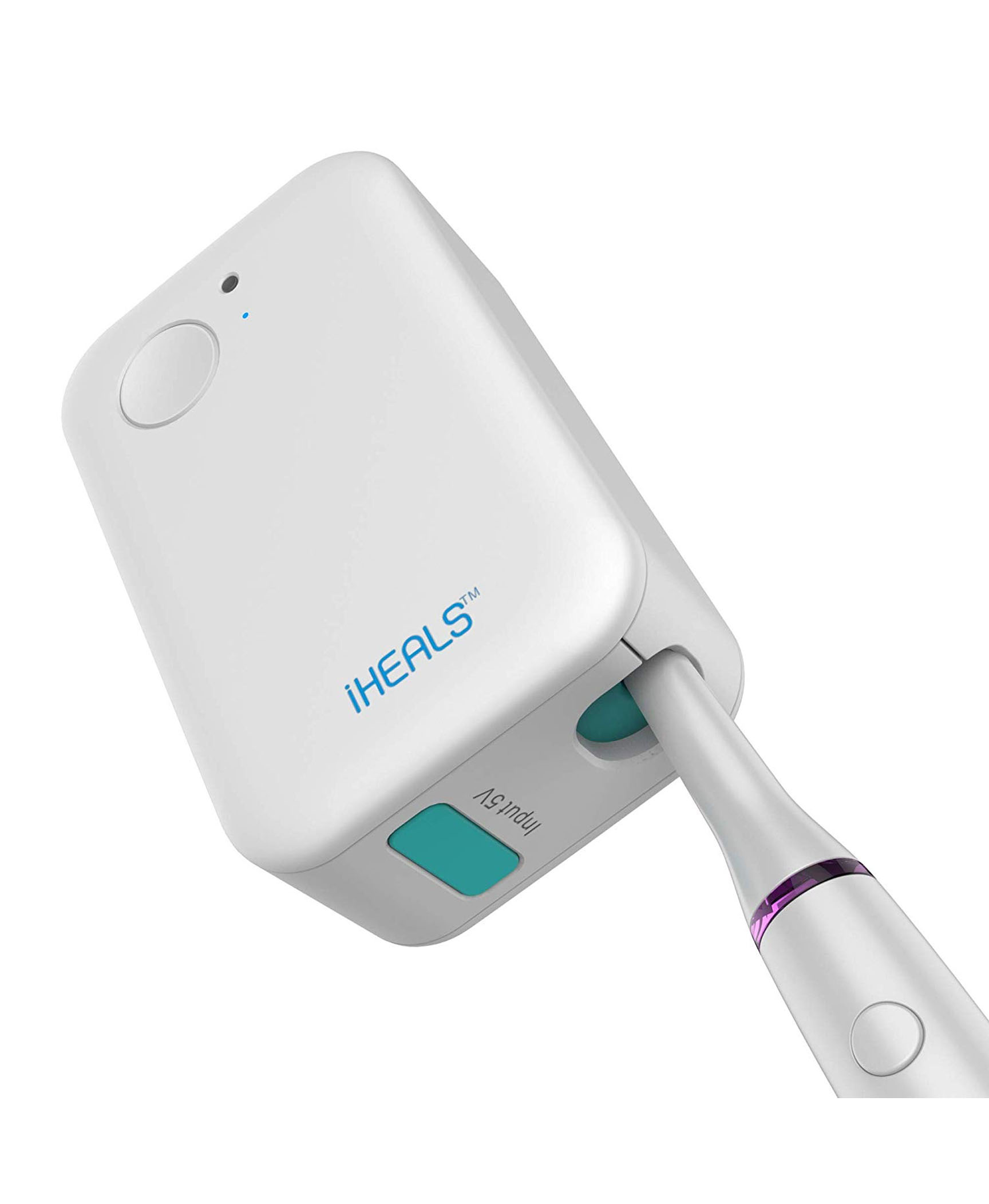Much like other industries, the novel coronavirus (COVID-19) has shaken the airline market to its core. As governments continue to introduce new travel restrictions, airlines have rolled with the punches on a day-to-day basis to keep health a priority while keeping their own operations afloat. Here’s a look at what measures airlines are taking amid the shifting travel landscape.
How are Major Airlines Responding to the Coronavirus (COVID-19)?
- Offering Flight Waivers and Refunds
- Canceling Flights and Suspending Service
- Extensive Disinfecting Onboard
- Social Distancing Passengers
- Limiting Interactions With Crew Members
- Eliminating or Reducing Beverage and Meal Service
- Asking Customers Not to Call Unless They have Immediate Travel
- Grounding Planes
Offering Flight Waivers and Refunds
Customers uncertain about upcoming travel or those who wish to forego flying altogether over the next few months can take advantage of flight waivers allowing for free changes or cancellations. Ticket holders who choose to cancel their itineraries will often be refunded in the form of flight credit for future flights, usually to be used within one year of the original booking date. If the airline cancels your trip due to a scheduling change, in most cases you will be offered a full refund to the original method of payment. Each carrier's flexibility and travel windows vary, so to see if your ticket qualifies, view our COVID-19 flight waiver and refund policies by airline page here.
Canceling Flights and Suspending Service
With government-imposed travel restrictions, lower demand, and cost-saving measures put in place, airlines are scrambling to reorganize their flight networks. Some carriers have even opted for an outright halt on operations to mitigate operational expenses during this unprecedented situation. Each day, new routes are being either suspended or postponed, so we’ve created this reference guide on all updated COVID-19 flight cancellations by region and airlines here to keep you in the loop of the latest news.
Related: What I Learned From My Flight Home During the COVID-19 Travel Ban
Extensive Disinfecting Onboard
Safety is a top priority, so you can be sure that companies are doing double duty to ensure airplanes are clean and clear for passengers onboard. By now your inbox has likely been swamped with emails from carriers stating their updated cleaning procedures and methods. But for those who skipped over or are unware here's a quick rundown on what major airlines’ cleaning staff are doing to sanitize their aircraft to meet EPA and CDC standards in light of the coronavirus.
- Enhanced aircraft cleaning between flights, deep cleaning on airplanes parked overnight
- Sanitizing high touch-point surfaces like: armrests, seatbelts, tray tables, control buttons, overhead latches, window shades, and lavatory handles
- Select airlines “fogging” interiors of planes with EPA approved disinfectant to further reach surfaces missed by manual cleaning
- Several carriers are offering additional sanitizing wipes for passengers
- Ensuring flights are onboard planes with hospital-grade HEPA (High-Efficiency Particulate Arresters) filtration systems that extract 99.97% of particles including airborne contaminants such as the coronavirus (COVID-19)
Social Distancing Passengers
Even though most airplanes are relatively empty now, with the upcoming sweeping cuts on service and drop in the percentage of daily flights, planes loads might get fuller. But fear not about being squeezed in the middle seat holding your breath the entire trip if you have essential travel in the near future. Major carriers like American and United are blocking out seats on flights to best adhere to social distancing guidelines. The dreaded middle seat will be shaded out on many seat charts, and gate agents are instructed to assign seats with as much room between customers as possible. Once onboard, airlines have also relaxed restrictions about passengers relocating themselves to an area with fewer passengers. And obviously, you must remain within the same cabin, so no free self-upgrades to business class. Due to capacity factors, these practices aren’t feasible on every flight and will have to account for the weight balance on the aircraft.
Related: How to Properly Disinfect Your Airplane Seat
Limiting Interactions with Crew Members
Alongside enhanced cleaning regiments, airlines are extending a cautious approach to onboard services. Passenger interactions with crew members will be limited, and many amenities have been put on hold during the outbreak. Several airlines have temporarily suspended handing out hot towels, while others have stopped offering self-service areas in galleys of longer-haul flights. In addition to cutting back on in-flight services, you may notice more flight attendants and airline staff wearing gloves and, in some instances, masks. To avoid added points of contact, most carriers will forgo refills and offer a new cup and are asking passengers to fill personal water bottles before boarding to limit additional interaction and waste.
Eliminating or Reducing Beverage and Meal Service
In the same vein as limiting interaction with cabin crew, several carriers have nixed traditional beverage cart service full stop. On short and medium-haul flights, airlines are opting for either offering free bottled water and snacks at the departure or making drinks only available upon request. Low-cost carrier Southwest has decided that for both employee and passenger safety, temporarily eliminating all inflight service onboard every flight is the most proactive measure, with only water available on demand. Passengers flying long-haul and internationally should still receive meals and some limited service, although significantly pared back with meal options largely reduced and subject to the specific route. Most of these new catering changes are effective immediately will several airlines keeping them in place through April 30, 2020, while others listing no set resumption date.
Related: Airlines Scrap Beverage Service, Snacks, and Middle Seats
Asking Customers Not to Call Unless They have Immediate Travel
Don’t swing into panic mode about that beach trip you have in late April. There are other passengers with more immediate needs. Due to an unprecedented number of calls to cancel or change tickets, airline call centers are bursting at the seams. To alleviate wait times for passengers requiring immediate attention, airlines are asking customers to refrain from contacting them by phone unless you have scheduled travel in the next 72 hours. However, if you are abroad and require travel back to the United States, it would be safe to sidestep these rules if you are in danger of getting stranded due to flight cancellations or government restrictions. If you don't fall into either of those categories, nearly all US-based carriers will allow you to amend your ticket or cancel online without having to dial in.
Grounding Planes
To weather the wallop of operational costs flying jumbo jets airlines have decided that the best course of action is to leave them on land. It’s not only gigantic A380’s and 777’s that are taking up premium tarmac parking space. Delta has announced it will ground an astonishing 600 planes over the next several months – over half their entire fleet. And American Airlines isn’t far behind either with their plans to park 75% off its widebody fleet as the carrier suspends nearly all of its international long-haul routes through at least early May. The grounding of these fleets is a last-ditch stopgap for hemorrhaging additional money on high-capacity aircraft with nearly nobody willing to fill the seats.
Related: How We’re Covering Flights, Fares, and Cancellations during the COVID-19 Pandemic
Those who are traveling in the near future can monitor the spread of COVID-19 in real-time using this map provided by the World Health Organization.
You can find more information on how this virus is transmitted as well as protective measures you can take to stay safe.
This post will be continually updated, so check back routinely and follow us on Twitter @airfarewatchdog for the most up-to-date information regarding what airlines are doing in response to COVID-19.











